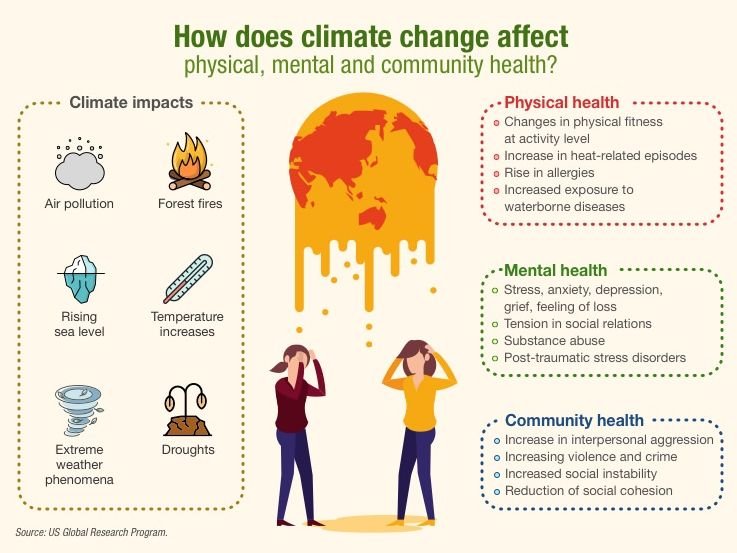Eco-anxiety is a relatively recent psychiatric illness associated with worry of climate change. This is impacting an increasing number of individuals since the climate catastrophe has a dramatic effect on human quality of life.

Climate change is a fact that is posing a growing danger to every person on Earth. This knowledge has resulted in eco-anxiety for many individuals who are acutely aware of the human responsibility to safeguard the environment.
Eco-anxiety, according to the American Psychological Association (APA), is “the persistent dread of environmental calamity that results from seeing the apparently irreversible consequences of climate change and the resulting worry for one’s own and future generations.”
According to experts, as climate-related concerns become more severe, the number of individuals experiencing uncomfortable psychological patterns will increase. According to an APA poll, two-thirds of US individuals reported experiencing some level of eco-anxiety.

A ten-country poll of 10,000 individuals aged 16 to 25 revealed widespread pessimism – 45 percent of those questioned said that worrying about climate change had a negative impact on their everyday lives. 75% said “the future is scary,” and 56% believed “humanity is doomed.”
Eco-anxiety and associated treatments possibilities were examined using a scoping study. Five major interventions for the treatment of eco-anxiety on an individual and group level were identified:
- practitioners’ inner work and education,
- fostering clients’ inner resilience,
- encouraging clients to act,
- assisting clients in finding social connection and emotional support through group participation,
- and connecting clients with nature.

As expected, the majority of evidence for eco-anxiety comes from Western nations; thus, future study should focus on non-Western countries, Indigenous peoples, young people, and individuals who are attached to the natural world.
Reference- American Psychology Association website, The Lancet, US Global Research Program






